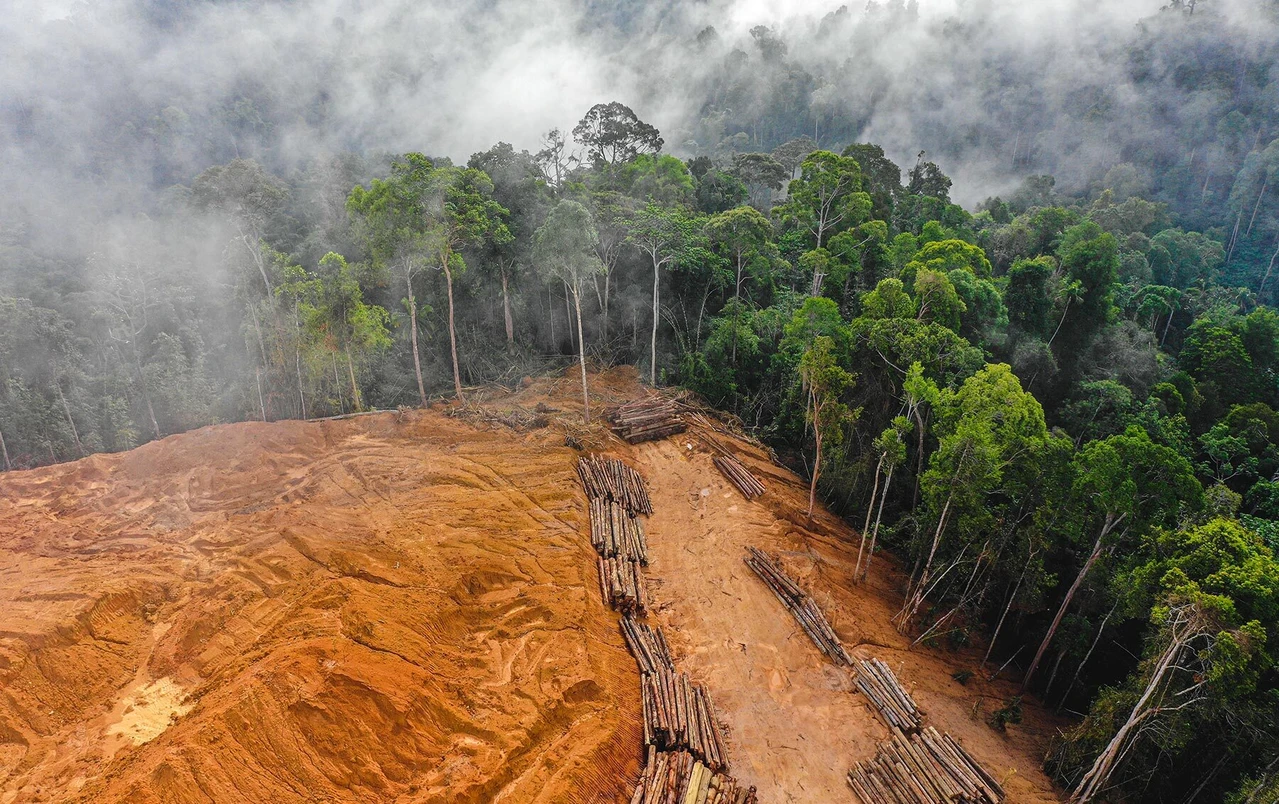Europe’s deforestation fight: Impact on Türkiye and global trade
 Logging of rainforest to clear land for palm oil plantations, in Borneo, Malaysia (Photo by Richard Carey)
Logging of rainforest to clear land for palm oil plantations, in Borneo, Malaysia (Photo by Richard Carey)
Over the last 30 years, the production of some agricultural crops has led to the destruction of 1.78 million square kilometers (over 670,000 square miles) of forest, an area equivalent to the surface area of Libya. This has contributed significantly to climate change and biodiversity loss.
Deforestation is a major driver of climate change, accounting for 11% of greenhouse gas emissions. In particular, soy, meat and palm oil production cause 80% of deforestation. In European Union countries, consumption of these products accounts for 7% to 10% of total consumption.
In order to tackle this problem, Regulation 2023/1115 on Prevention of Deforestation came into effect on June 9, 2023, published in the EU Official Journal.
This regulation stipulates that soy, beef, palm oil, wood products, cocoa, coffee and certain goods containing these products (e.g. chocolate, furniture, rubber, leather) must prove that their production process does not lead to deforestation and that they are produced in accordance with the relevant country’s legislation.
The EU’s Deforestation Regulation is expected to have far-reaching impacts on global trade.
As the EU is one of the world’s largest consumer markets, this regulation could reshape global supply chains. The regulation will require manufacturers and suppliers around the world to comply with sustainability standards, which is expected to lead to significant changes in the global supply chain.
The new regulation puts pressure on other major economies to adopt similar regulations, which is expected to contribute to increased environmental awareness and sustainability efforts on a global scale.
Implications for Türkiye
As one of the EU’s largest trading partners, Türkiye is among the countries that will be directly affected by this new regulation. Türkiye’s exports to the EU, especially of agricultural and forestry products, will have to comply with the standards imposed by this new regulation.
It is likely that Türkiye’s agriculture and forestry sectors will need new investments to adopt sustainable production techniques and make the supply chain transparent.
Many exporters will have to review their production processes and take measures to prevent deforestation in order to meet the EU’s new requirements. Due diligence processes will need to be completed for products to enter the EU market.
World Environment Day once again highlights the importance of these steps towards a sustainable and environmentally friendly world. Europe’s pioneering action can set an example for other major economies and contribute to strengthening global environmental protection efforts.



